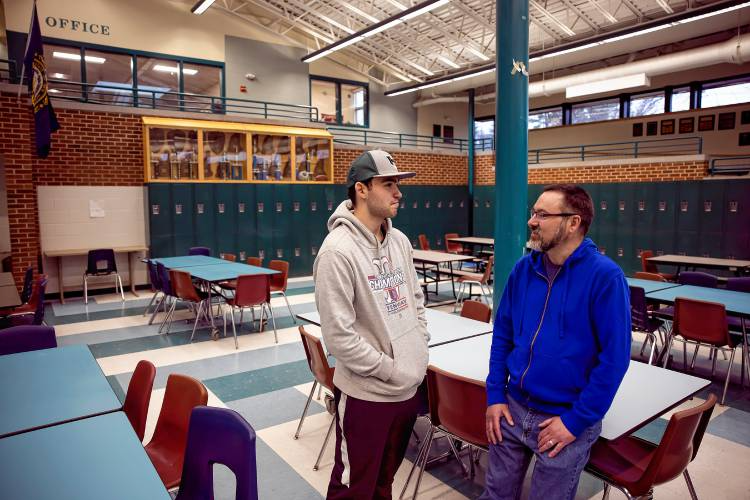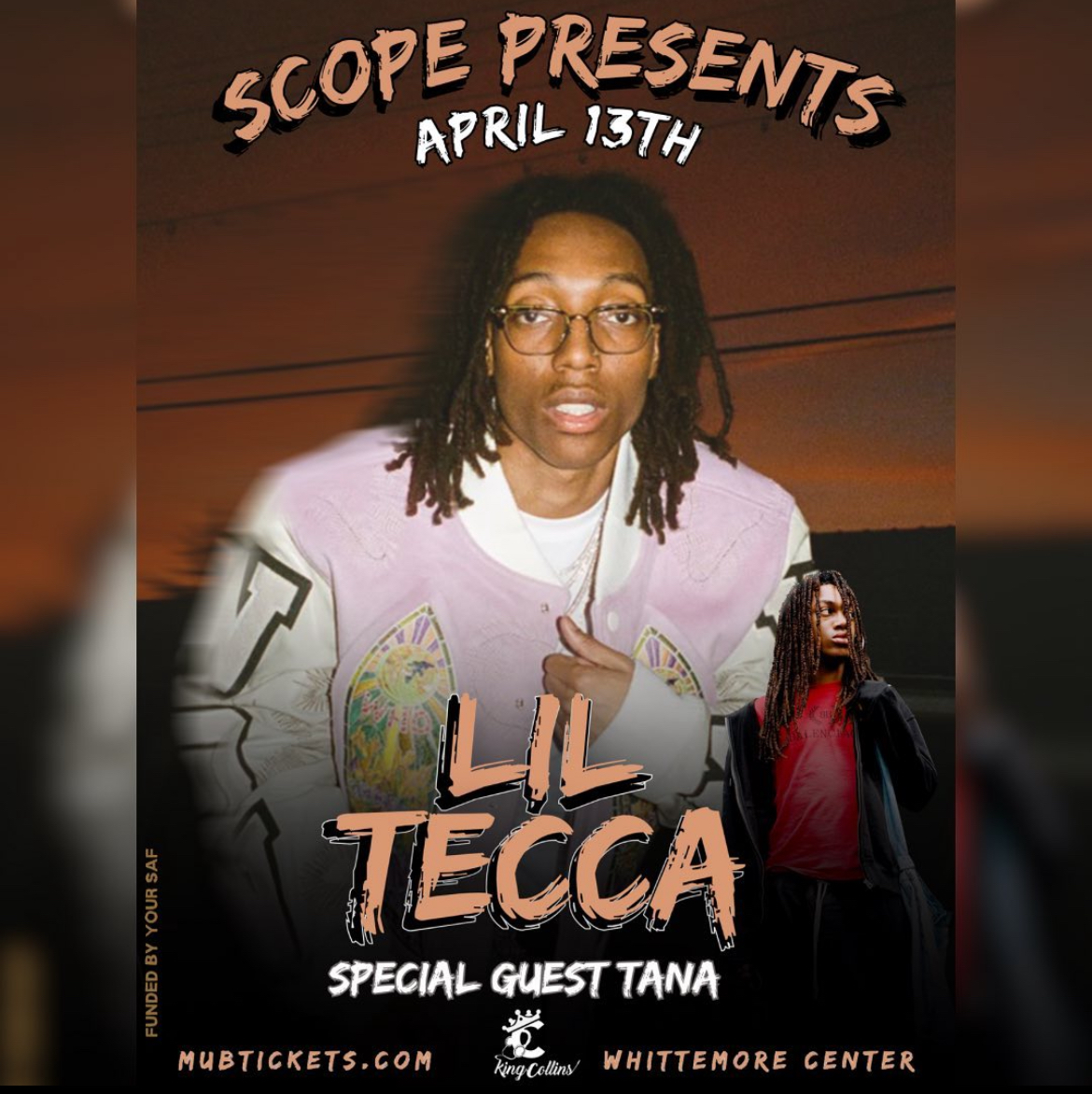In her role as featured speaker in this year’s entry of the University of New Hampshire’s Rutman Distinguished Lecture Series on the American presidency, Pulitzer Prize-winning journalist Maggie Haberman shared national insight to the local community regarding her recent experiences covering the administration of President Donald Trump and how they have shaped her views on free press and the future of the Trump administration.
Addressing a near-packed crowd in the Memorial Union Granite State Room, Political Science Professor Dr. Dante Scala, in his introduction of Haberman – a New York Times White House Correspondent who received the Pulitzer alongside her Times colleagues for their coverage of Trump’s campaign in 2016 – said there was “no debate” when searching for someone to come speak about the current presidency.
The event was full with an estimate of about 600 entries, and attendance was in the 560 to 570 range, according to an event official. Attendance was open to the public and dominated by faculty and other adults from the community within and beyond Durham as well as a smaller turnout in comparison of UNH students.
Speaking on how the Times have adapted in the wake of the Trump administration’s coverage and questions about fact, Haberman said the size of the White House correspondent team has increased from four (during the Obama administration) to six. In response to the layers of source work that are necessary to get all the accurate information, there has been an increased number of multiple reporter bylines in the Times coverage of the Trump administration as well. Haberman said reporters at the Times are doing the best they can to figure out the truth and to find out what matters and what doesn’t, but are admittedly still struggling to show that to viewers.
Haberman said that she has “never seen a president who has said so many things that are untrue that they need to be catalogued.” She said that President Trump scraps conversations that he’s had and “repackages them” as his own, and has recently begun attributing fake quotes to real people (including a tweet where Trump claimed Sen. Mitch McConnell (R-KY) said Trump’s conversation with the Ukraine president was a “perfect call;” McConnell later denied the president’s claim).
To get a better understanding of Trump’s relation to the media, the conversation took a focus on his negative interactions with the “Failing New York Times” (a tweet from Trump in August), to which Haberman noted “we aren’t failing.” She said it is important to understand Trump’s relationship with the Times because it has a place in his mind – he’s “obsessed” with it and is looking for its acceptance. Haberman said that Trump once mentioned to a friend that he had only been on the cover a handful of Times before his presidency, but since then he has made the cover quite often.
Trump figured out to turn himself into a commodity, getting people to cover him “on his own terms,” Haberman said. Because of this, she said, it is dangerous when people take his word seriously since they don’t realize he is playing a game, although she said he doesn’t speak in those terms all the time. Kurk Dorsey, a UNH history and liberal studies professor, said due to this the “policy issues maybe aren’t as important as the coverage he’s getting,” [Trump].
Haberman pointed to another “important observation” about Trump’s involvement with legislation prior to the presidency when he was involved in business in New York. She said that he interacted at a municipal level, and “he views rules as obstacles to be gotten around.” These views still apply now, she said, and he hasn’t gone through a transformation since gaining that power – he’s the same Donald Trump now as he was in 2015. What changed was the nature of such coverage coming from Washington, D.C. – rather than the New York tabloid coverage Trump was used to, he gets elected official coverage where they’re “just covering what happens,” Haberman said.
One of the most important takeaways from the talk, according to Dorsey, was Haberman’s mention of “how much of a show this [the presidency] is for this president.” Haberman mentioned that Trump sees himself as producing and starring in this “big show,” a lot of it “is a game to him,” and he often turns everyone around him into characters in said show.
Dorsey also said the event helped him and others gain insight into the “importance of the free press,” and the processes journalists must take, helping them better understand a “very unusual presidential administration.” Dorsey was looking forward to “hearing about how a reporter works in a White House, how to get information out of people in the White House, especially when there are contradictions…even questions about fact.”
UNH President James W. Dean Jr. told The New Hampshire that he and the rest of the university were “really happy to host this event,” calling Haberman’s visit a “wonderful gift to the university” and stressing that “being able to attract such top-level talent…especially during the beginning of election season, is something we’re really delighted about.”
Professor of Molecular, Cellular and Biomedical Sciences Don Wojchowski said he felt that the event and Haberman’s insight addressed personal concerns “for the current status of the immobility of Congress and Senate due to [un]necessary distractions from the present administration.”
Junior English/journalism and communications major Jamie Azulay said these types of events provide a different perspective. She said that most of what she hears about Trump comes “from social media like Facebook and Twitter, but to hear it from someone who knows about it firsthand, I think, is important.”
News Editor Benjamin Strawbridge contributed reporting to this article.





















